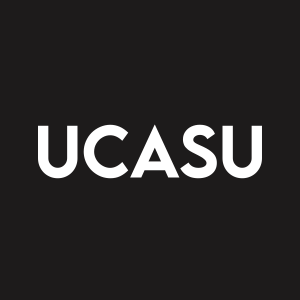Wall Street Journal echoes UCASU's new strategy that will reshape real estate
UC Asset LP (OTCQX: UCASU) is gaining attention from a recent Wall Street Journal article discussing the rise of remote work and its impact on urban living. The article highlights UCASU's innovative strategy with its SHOC model, promoting 'Shared Home-Office Community', where residential spaces are designed for remote workers. This approach aims to meet the needs of a growing remote workforce while increasing property value and ROI. The WSJ article endorses UCASU's vision, suggesting a significant shift in real estate dynamics.
- SHOC model aligns with the increasing demand for remote work accommodations.
- Potential to revolutionize the traditional hotel industry by offering tailored living and working environments.
- Focus on enhancing property value and ROI through innovative business strategies.
- None.
ATLANTA, March 9, 2021 /PRNewswire/ -- UC Asset LP (OTCQX: UCASU) hails a Wall Street Journal article released over the weekend, which echoes UCASU's innovative business strategy to disrupt real estate industry.
This WSJ article, titled "How Remote Work is Reshaping America's Urban Geography", focused on the emerge of "Zoom Town" across the country, which are smaller cities and communities turned into hubs for "mobile professionals", i.e., the new generation of workforce who are working remotely a significant part of the time.
The article's statement that "Remote work severs the age-old connection between where people live and where they work" confirms the vision of UCASU's management. Larry Wu, founder of UC Asset, claims that "this is exactly the concept which we have been promoting for months."
The WSJ article goes on to state: "For most of history, people literally worked where they lived, on farms and in ground-floor workshops, or at most a short walk away. With the advent of subways, commuter trains and the automobile, the distance between home and the workplace expanded…the rise of remote work changes that equation."
UCASU's new business model, namely SHOC (standing for "Shared Home-Office Community"), is based on exactly the same trend. According to UCASU's business plan, SHOC is a revolutionary concept of futuristic community, which will combine residential and commercial spaces, and bring back the lifestyle that human beings have always enjoyed till the industrial age, i.e., to live where they work.
"Communities in which people live where they work, is more efficient, more environmental, probably more productive, and, more human." Says Wu.
In the initial phase, SHOC will replace a large part of conventional hotels. SHOC properties will be built as residential houses with each bedroom designed as an individual business lodge equipped with office capabilities. The home-office focused spaces will be rented out to business travelers as an alternative to conventional hotels, selling on platforms such as Airbnb,VRBO or through corporate partnerships.
According to the WSJ report, as much as a quarter of the 160-million-strong U.S. labor force is expected to stay fully remote in the long term, and many more are likely to work remotely a significant part of the time. "When people work remotely, they will travel differently. Conventional hotels will not be able to meet the challenges of next generation business travelers who are so-called mobile professionals." Declares Wu, "Conventional hotels will be taken over by technology driven shared-accommodation spaces like SHOC, similar to that conventional taxi businesses have been taken over by shared-ride companies like Uber and Lyft."
From investors' point of view, SHOC (Share-Home Office Community) is a systemic approach to property value-adding investment. It will add cash income on top of the value gain of house renovation and will likely improve the total ROI to remarkably higher than market average. "In real estate, you can only make so much if you simply buy and hold. But if you also have a successful business model to run those properties, you are on the path to create the next McDonald, which is a real estate empire built on a successful business model." Wu elaborates.
"Last month, major travel media Skift.com featured us in its front-page story. Now Wall Street Journal story echoes our position." Says Christal Jordan, Investor Relations director of UC Asset, "We feel very encouraged that our vision is shared among more and more industry leaders."
The entire article from Wall Street Journal can be viewed at: https://www.wsj.com/articles/how-remote-work-is-reshaping-americas-urban-geography-11614960100
About UC Asset:
UC Asset LP is a limited partnership formed for the purpose of investing in real estate for development and redevelopment, concentrating in metropolitan areas of Atlanta, GA. For more information about UC Asset, please visit: www.ucasset.com
Disclaimer:
This News Release contains forward-looking statements within the meaning of the Private Securities Litigation Reform Act of 1995. These forward-looking statements involve known and unknown risks, uncertainties and other important factors that could cause our actual results, performance or achievements, or industry results, to differ materially from any these statements. You are cautioned not to place undue reliance on any those forward-looking statements. Except as otherwise required by the federal securities laws, we undertake no obligation to publicly update or revise any forward-looking statements after the date of this News Release. None of such forward-looking statements should be regarded as a representation by us or any other person that the objectives and plans set forth in this News Release will be achieved or be executed.
For More Information Contact:
Christal Jordan | Investor Relations Director, UC Asset LP
cjordan@ucasset.com | +1 678-499-0297
![]() View original content:http://www.prnewswire.com/news-releases/wall-street-journal-echoes-ucasus-new-strategy-that-will-reshape-real-estate-301243558.html
View original content:http://www.prnewswire.com/news-releases/wall-street-journal-echoes-ucasus-new-strategy-that-will-reshape-real-estate-301243558.html
SOURCE UC Asset LP
FAQ
What is UCASU's new SHOC business model about?
How does the Wall Street Journal view UCASU's strategy?
What impact does remote work have on UCASU's business strategy?
What market trend is UCASU capitalizing on?







